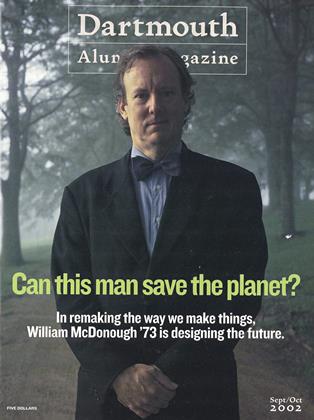Edwin Drechsel '36, Tu'36, draws on his experience working for Standard Oil Co. in his chronicle of Venezuelan and oil industry history, from Venezuela with Love:200 Years of Fascinating History, Literature, Politics, Economy andNature (Creative Arts Book Co.).
Granville Austin '50, historian and leading authority on the Indian constitution, explains the influences on constitutional reforms since 1950 in Working a Democratic Constitution: The Indian Experience (Oxford University Press).
Charles: Wheelan '88, a former correspondent for The Economist, explains economics with stories: and examples that are both entertaining and enlightening in NakedEconomics: Undressing the Dismal Science (W.W. Norton).
Joseph Pardee '53 satirizes a young mans coming of age in late 19th-century New England in his first novel, Dame Fortune's Favor: (iUniverse.com).
Richard A. Hogarty '55 lends insight into late 19th-century state politics during the turmoil of industrialization in a biography of working-class advocate and New jersey governor Leon Abbett in Leon Abbett's New Jersey (American Philosophical Society).
Geoffrey Gilbert '70, an economist at Hobart and William Smith Colleges, addresses the complex issues surrounding world population changes in World Population:A ReferenceHandbook (ABC-CLIO).
David Schmahmann '78, a Boston lawyer who was born in Durban, South Africa, has earned the John Gardner Fiction Book Award for Empire Settings (White Pine Press), a story of love between a young white man and a young black woman during South Africa's apartheid era.
Eric Ziolkowski '80 traces the evolving significance of the recurring motif of urchins in Evil Children in Religion, Literature and Art (Palgrave).
Mark C. Henrie '87 edited Doomed Bourgeois inLove: Essays on the Films of Whit Stillman (ISI Books) about the political and social implications of Stillman's comedies Metropolitan,Barcelona and The Last Days of Disco.
 View Full Issue
View Full Issue
More From This Issue
-
 Cover Story
Cover StoryDesigning the Future
September | October 2002 By Brian Dumaine -
 Feature
FeatureAn Honor, To a Degree
September | October 2002 By JAMES O. FREEDMAN -
 Feature
FeatureThe Club Scene
September | October 2002 -
 Article
ArticleSeen & Heard
September | October 2002 -
 Personal History
Personal HistoryRiver Dance
September | October 2002 By Jonathan Agronsky ’68 -
 Article
ArticleAcademic Aesthetics
September | October 2002 By President James Wright
Books
-
 Books
Books"The Horopter and Corresponding Retinal Points"
December 1932 -
 Books
BooksQUICK GUIDE TO WINE.
NOVEMBER 1966 By C.E.W. -
 Books
BooksWRITER'S GUIDE AND INDEX TO ENGLISH
March 1943 By E. H. BOOTH 'lB. -
 Books
BooksPOLITICAL THOUGHT IN AMERICA
April 1960 By FRANK SMALLWOOD '51 -
 Books
BooksCOMPLETE CREDIT AND COLLECTION LETTER BOOK.
June 1954 By JOHN A. GRISWOLD -
 Books
BooksTHEATRE OF SOLITUDE: THE DRAMA OF ALFRED de MUSSET.
November 1974 By M.A.BILEZIKIAN

